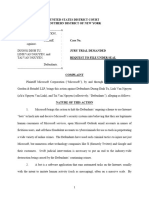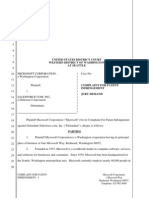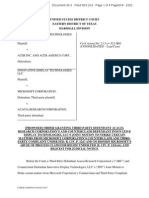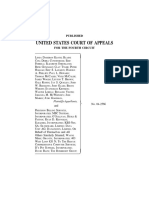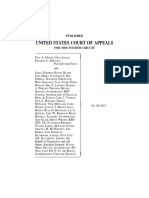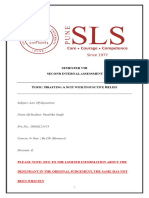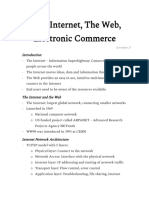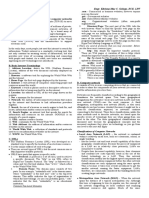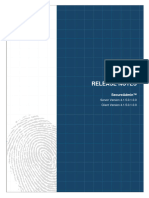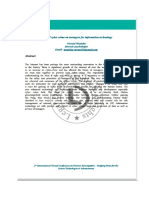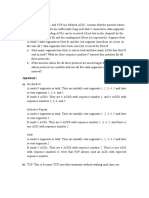0% found this document useful (0 votes)
77 views6 pagesAmended Ex Parte Temporary Restraining Order
Microsoft Corporation has filed a complaint against unidentified defendants operating an Azure abuse network, seeking an emergency temporary restraining order under various laws including the CFAA and DMCA. The court found good cause to believe that the defendants have engaged in unlawful activities that harm Microsoft and its customers, necessitating immediate action to prevent further violations. The order restrains the defendants from accessing Microsoft’s systems and requires domain registries to maintain control over domains used in the abuse until a preliminary injunction hearing on January 10, 2024.
Uploaded by
mmnn555Copyright
© © All Rights Reserved
We take content rights seriously. If you suspect this is your content, claim it here.
Available Formats
Download as PDF, TXT or read online on Scribd
0% found this document useful (0 votes)
77 views6 pagesAmended Ex Parte Temporary Restraining Order
Microsoft Corporation has filed a complaint against unidentified defendants operating an Azure abuse network, seeking an emergency temporary restraining order under various laws including the CFAA and DMCA. The court found good cause to believe that the defendants have engaged in unlawful activities that harm Microsoft and its customers, necessitating immediate action to prevent further violations. The order restrains the defendants from accessing Microsoft’s systems and requires domain registries to maintain control over domains used in the abuse until a preliminary injunction hearing on January 10, 2024.
Uploaded by
mmnn555Copyright
© © All Rights Reserved
We take content rights seriously. If you suspect this is your content, claim it here.
Available Formats
Download as PDF, TXT or read online on Scribd
/ 6


























